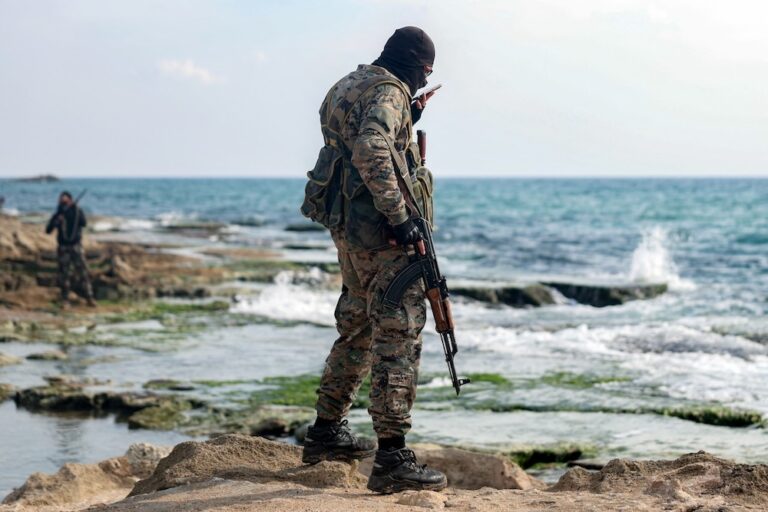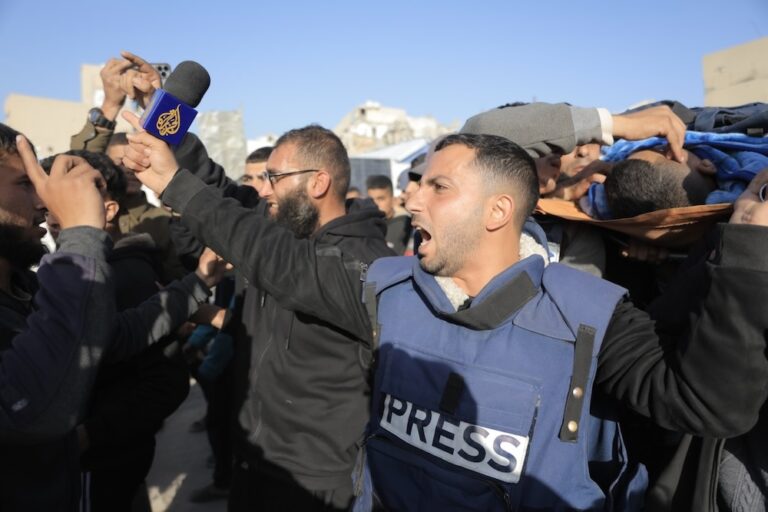In its annual report on free expression in the region, the Arabic Network for Human Rights Information examines the myriad of violations dissidents face including arrests, violence, and smear campaigns.
This statement was originally published on anhri.info on 3 May 2020.
On the occasion of World Press Freedom Day, which is marked today, the Arabic Network for Human Rights Information (ANHRI) announces the release of its annual report on the state of freedom of expression and freedom of the press in the Arab world during 2019. The report provides a clear picture of the deteriorating situation of freedom of expression in the entire Arab region, which is reflected in: the ongoing detention of dissidents over cases related to published stories, escalating defamation and smear campaigns against those who express their opinions while barring them from working, and physical assaults against critics and opponents.
The report, entitled “Pleases Neither Friend Nor Foe… The State of Freedom of Expression in the Arab World 2019“, cites examples of the violations witnessed by 12 Arab countries (Jordan, Bahrain, Algeria, Saudi Arabia, Sudan, Iraq, Kuwait, Morocco, Tunisia, Palestine, Lebanon, Egypt), as an example of the overall situation of freedom of expression in the entire Arab world.
The report points out that most Arab governments are not only keeping tight control of traditional media, but they are also prosecuting users of the Internet, which has become nearly the only outlet for independent journalists- most of whom are being deprived of their work- along with those who express their opinion, especially the youth. The term “prisoners of conscience” has become commonplace in all Arab countries, which are governed by regimes each of whom claims to have respected freedom of expression, albeit according to its own view. These governments allow only for expressing views that extol the glory of the ruler, whether he is a president, king, Emir (prince) or Sultan, even if these views don’t involve any criticism or differing opinions.
Those who express an opinion in the Arab world are only allowed to do so to boost the majesty, power, sophistication, and integrity of these rulers. But when it comes to criticism, the mere criticism, critics will be subjected to manifold forms of punishment; imprisonment may be the least severe violation, as other common violations may include: physical assault, kidnapping, murder, being barred from working and defamation and smear campaigns that are not bound by any limits.
Therefore, ANHRI could not find any words to describe the state of freedom of expression and freedom of the press under the reign of those great and wise rulers, monarchs, kings, emirs and sultans except to say that: the situation pleases neither friend nor foe.
You can read the report at the following link: “Pleases Neither Friend Nor Foe… The State of Freedom of Expression in the Arab World 2019“



